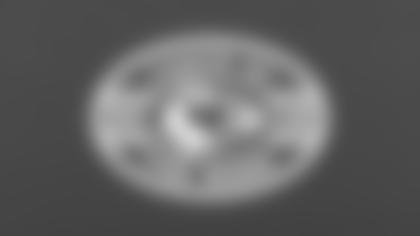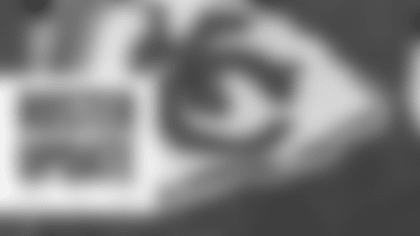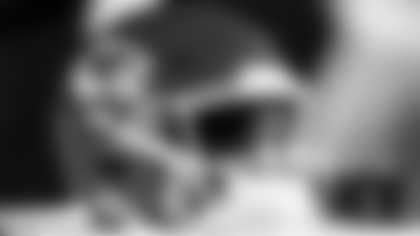"He was like a meteorite."
That was maybe the best way to describe the sudden impact running back Priest Holmes made on the Kansas City Chiefs when he signed as a free agent back in 2001.
That statement by Peter King of Sports Illustrated echoed what many Chiefs fans would say about that time in Chiefs history, when an offensive juggernaut was born.
"I think one of the great things about Priest Holmes is that it was so unexpected," King explained.
This unexpected journey of Holmes' football career began back at John Marshall High School in San Antonio, Texas.

His coach back at John Marshall High School, David Visentine, recalls the first time he met Holmes.
"He's just sitting on top of his bicycle hanging onto the chain-linked fence," Visentine reflected. He's sitting there and he's watching practice. I walked over to him and I said 'Are you Priest Holmes?' He nodded, I said 'You going to play football?' He nodded again.
"I said 'We're working out, you need to start working out with us. Are you ready to work out?' He nodded. That was it."
Just like that, the quiet, unassuming teenager hanging on the fence would eventually become a meteorite and one of the most revered football players in Kansas City Chiefs history.
Visentine remembers a time that Holmes was doubted by many, which became a theme for Holmes throughout his football career and gave him a chip on his shoulder that fueled his path to greatness.
"I thought he was better than what some of the college people thought," Visentine said of Holmes recruitment. "They were always a little skeptical of his speed. I said 'Hey. Watch all the video. Watch the video. Nobody catches him. How fast do you want him to be? Nobody catches him.'"
Holmes got an opportunity at the University of Texas, and it was a few special games from him that stand out to those who remember his time in Austin.
25 of the best photos from the career of Chiefs great Priest Holmes
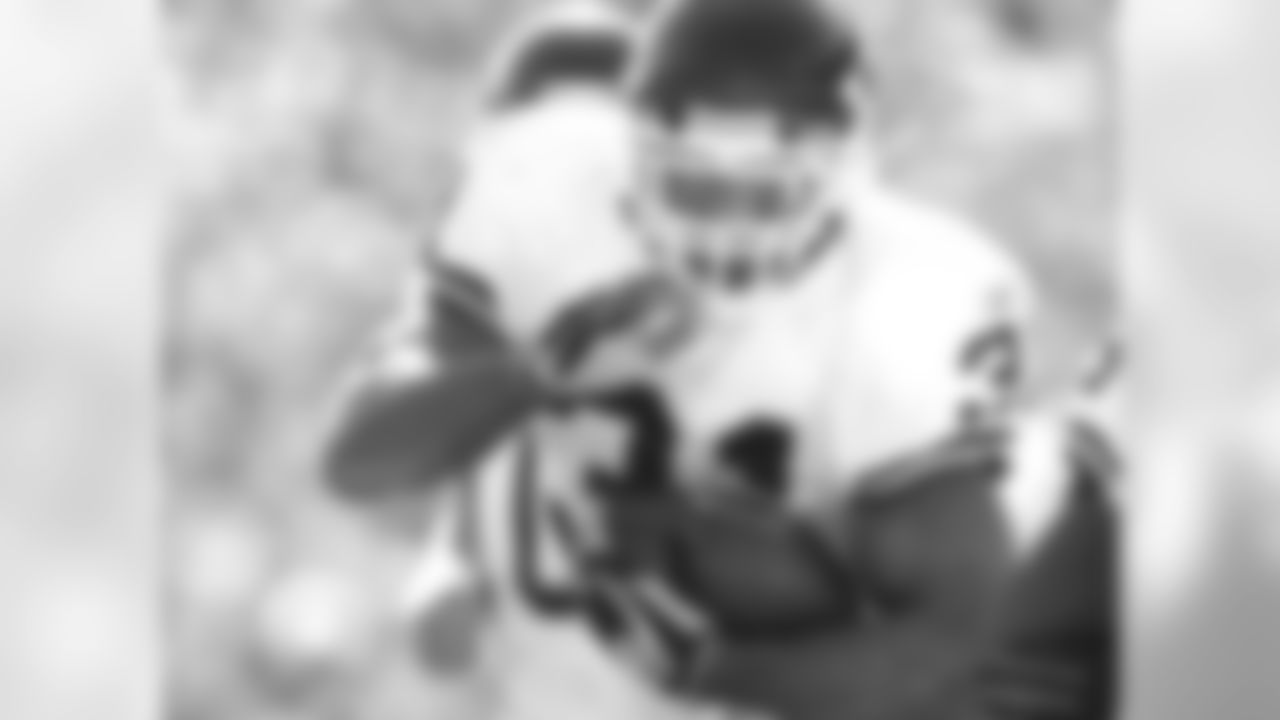
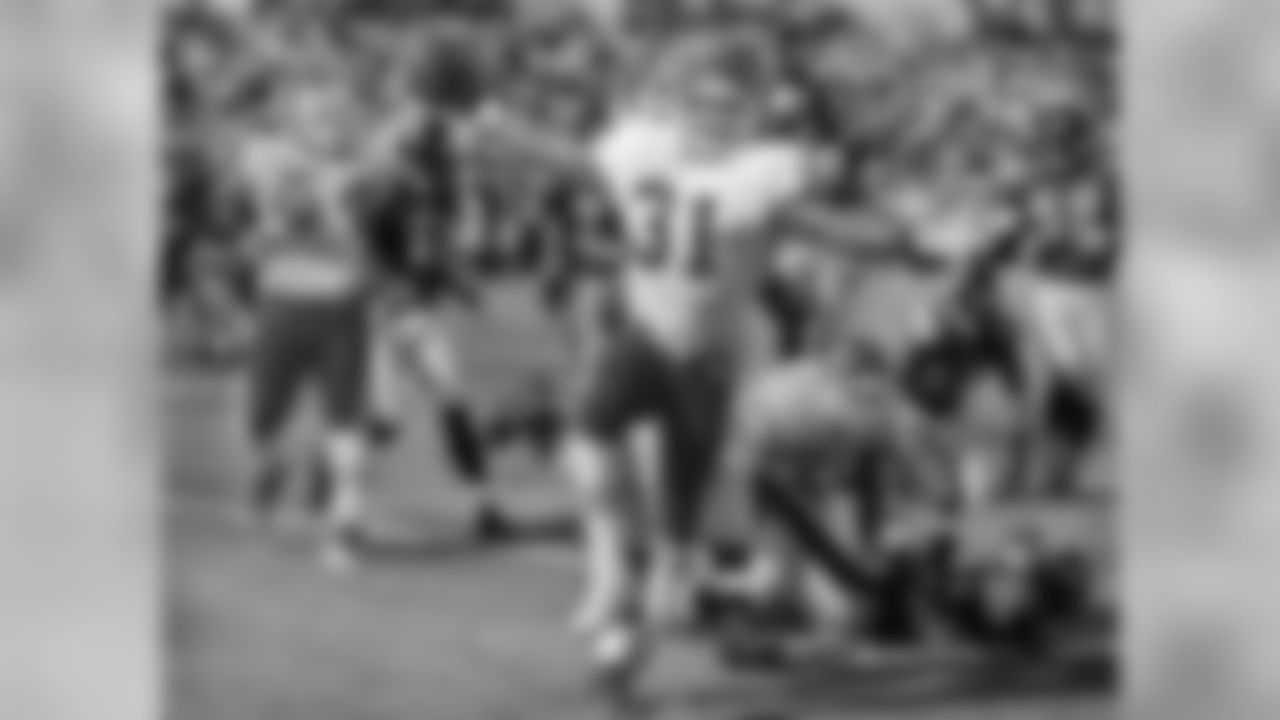
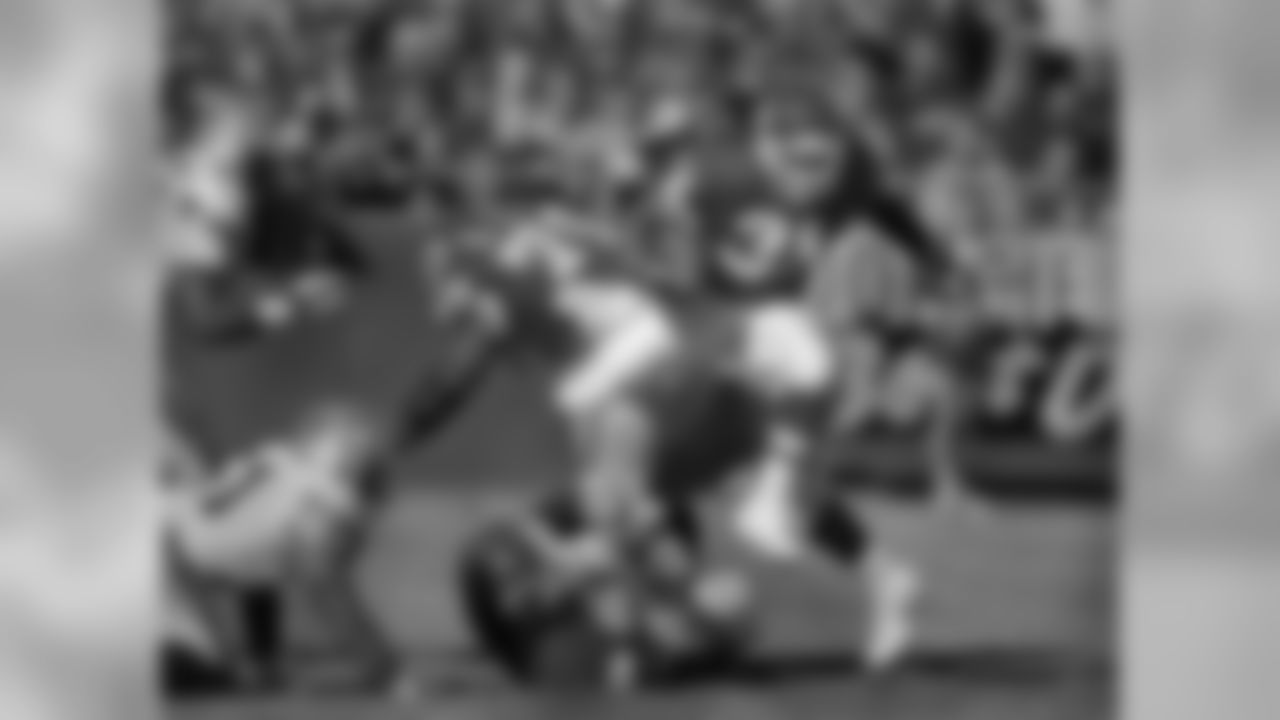
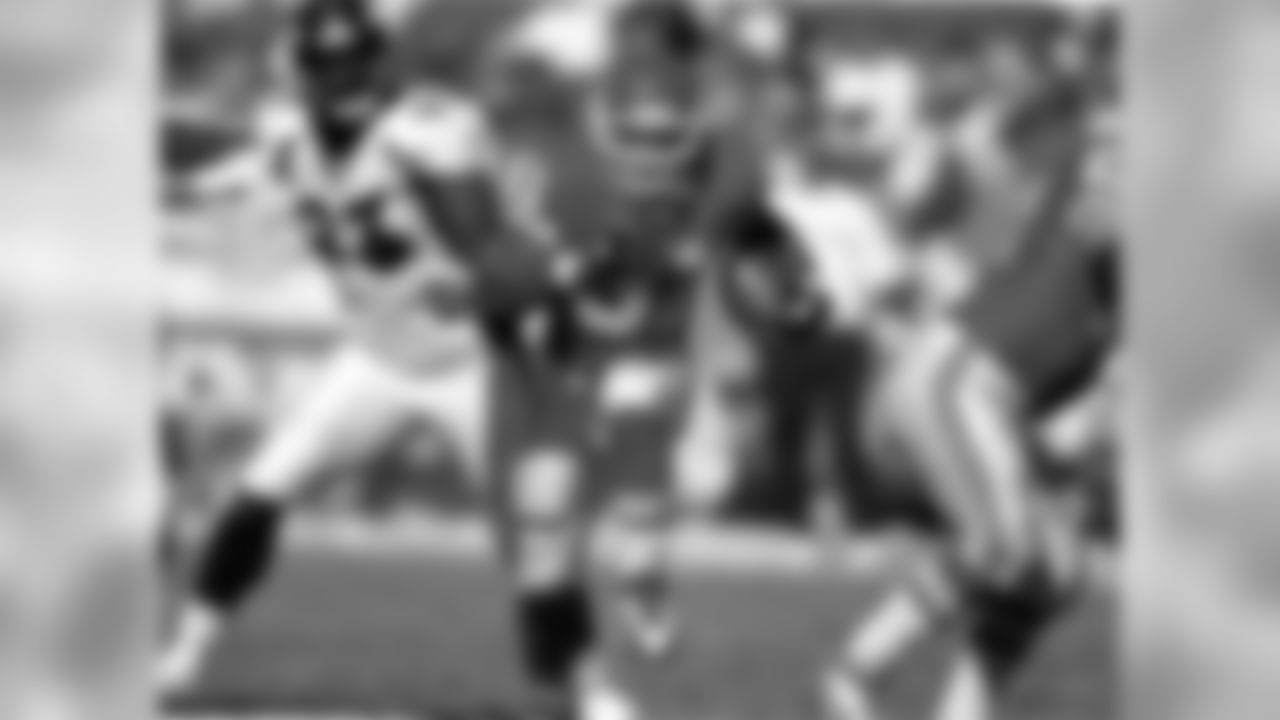
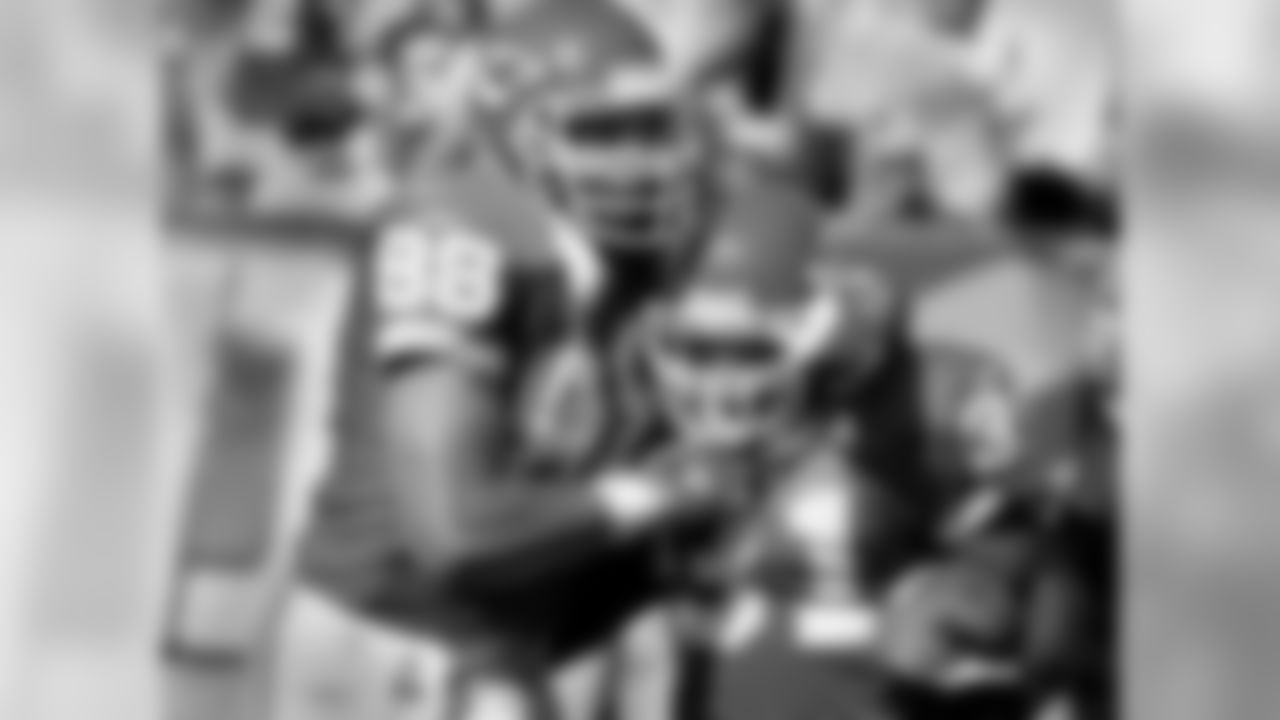
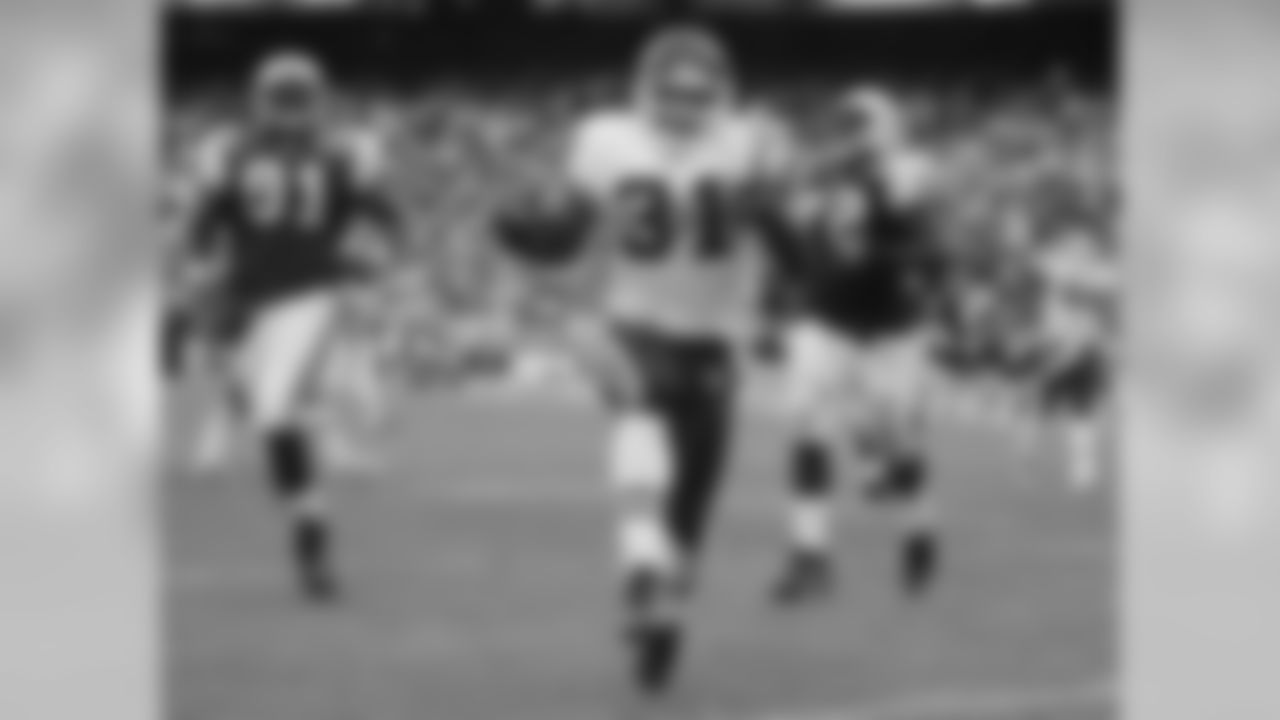
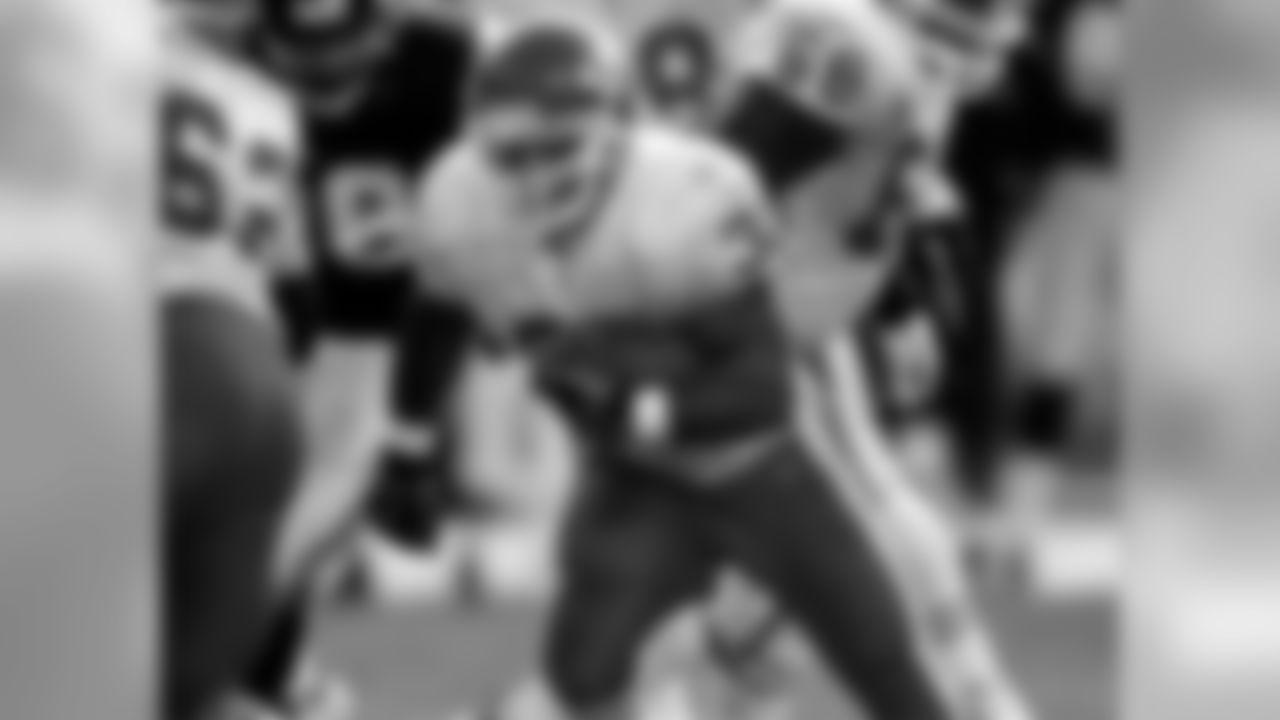
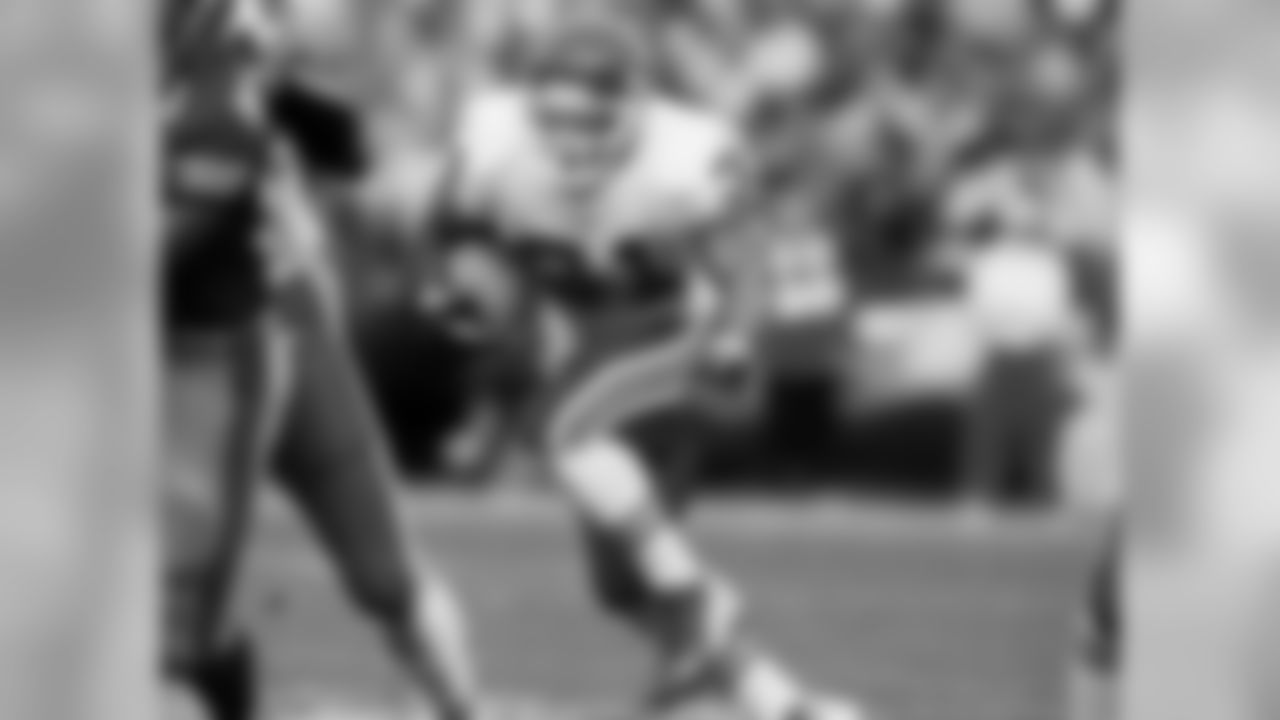
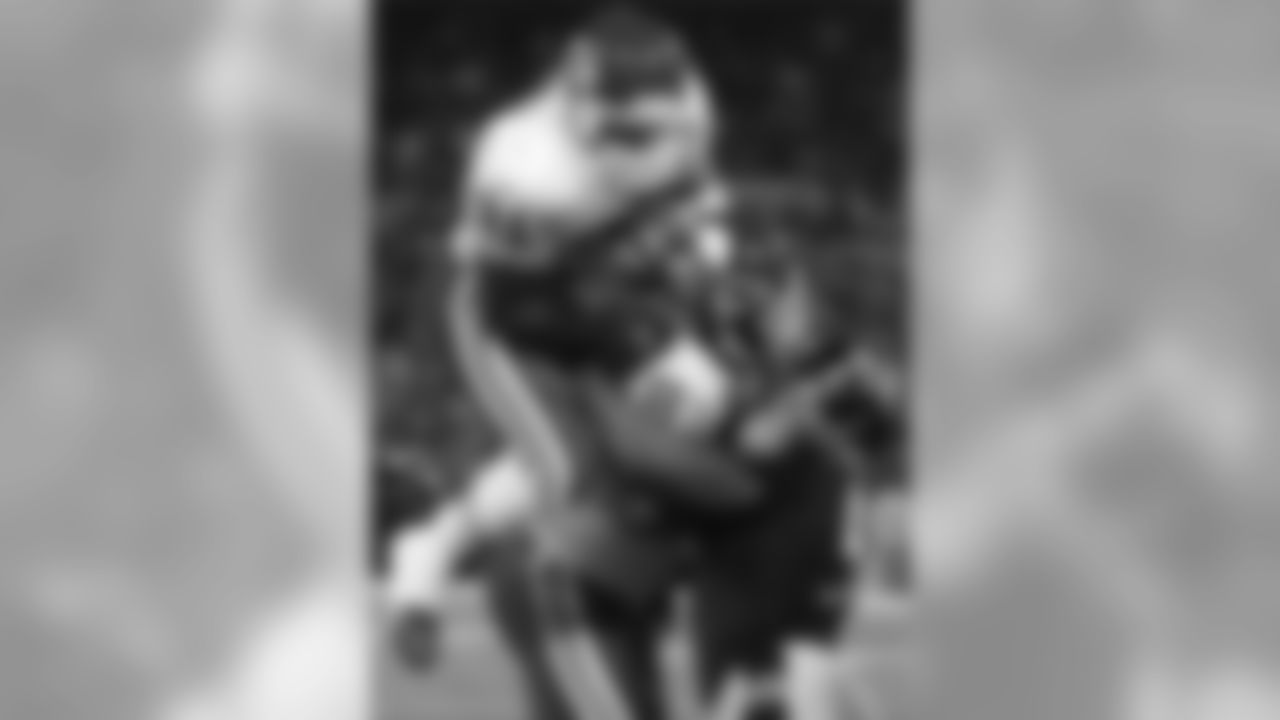
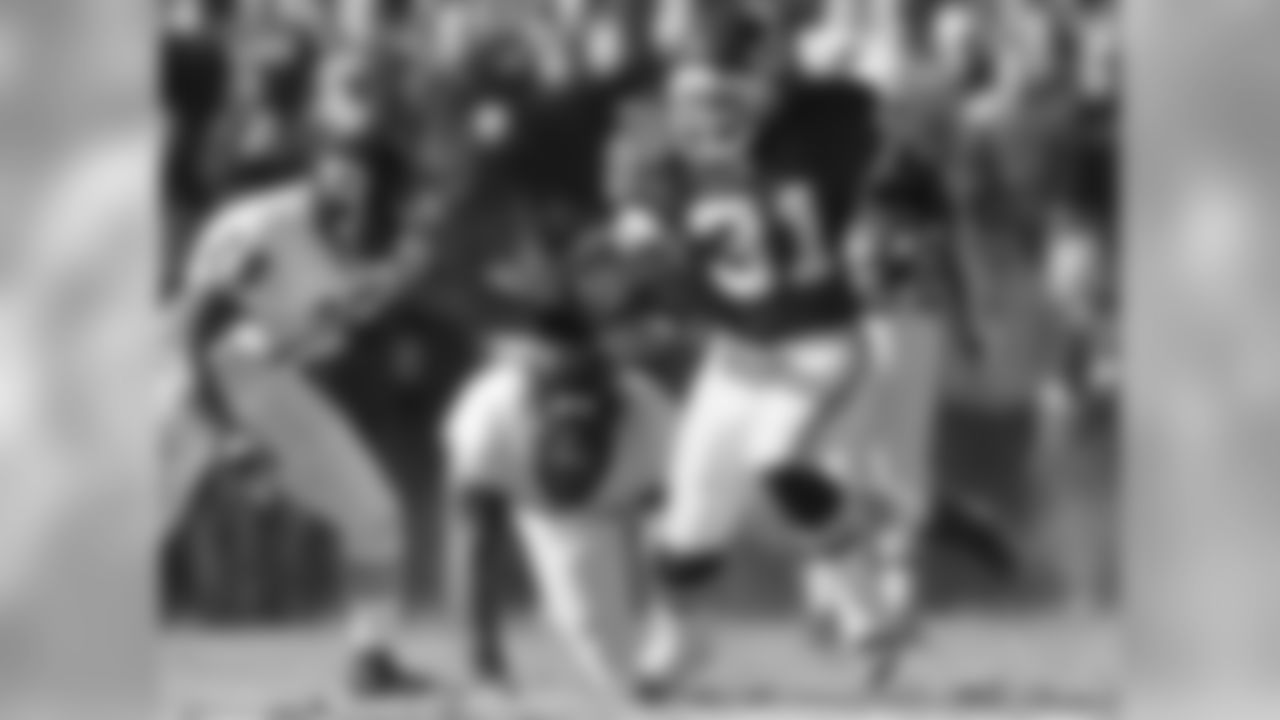
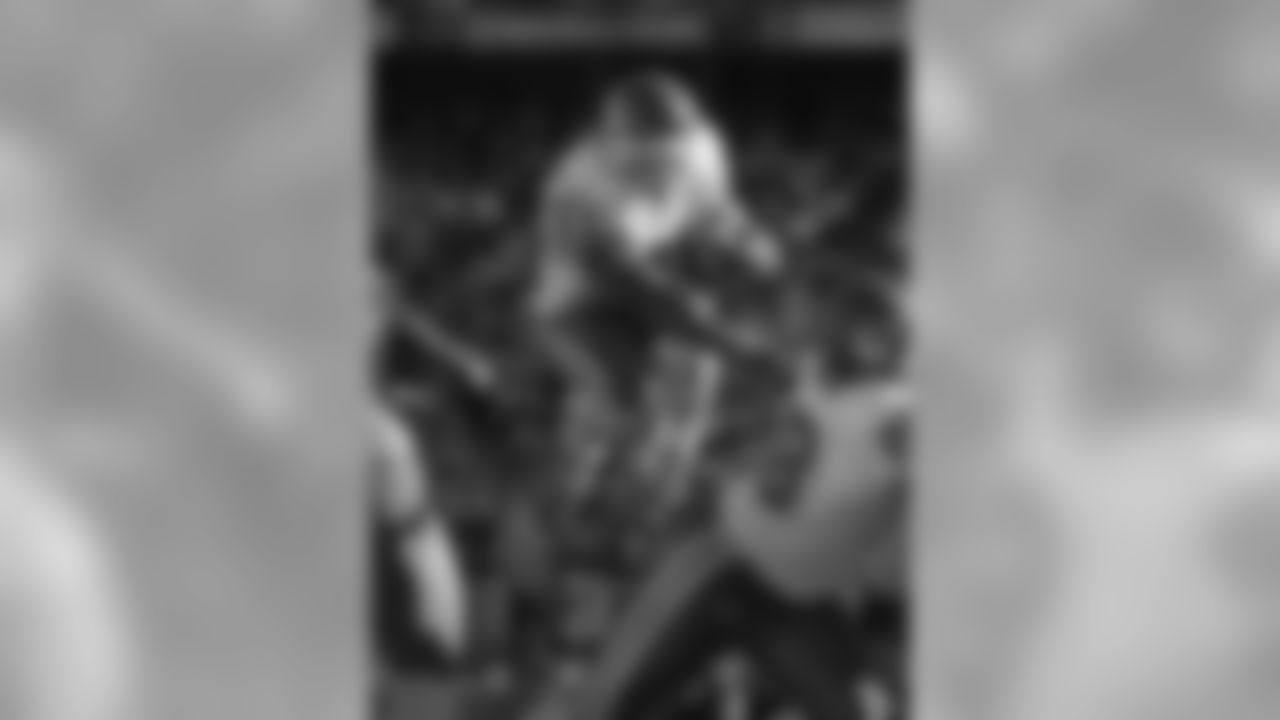
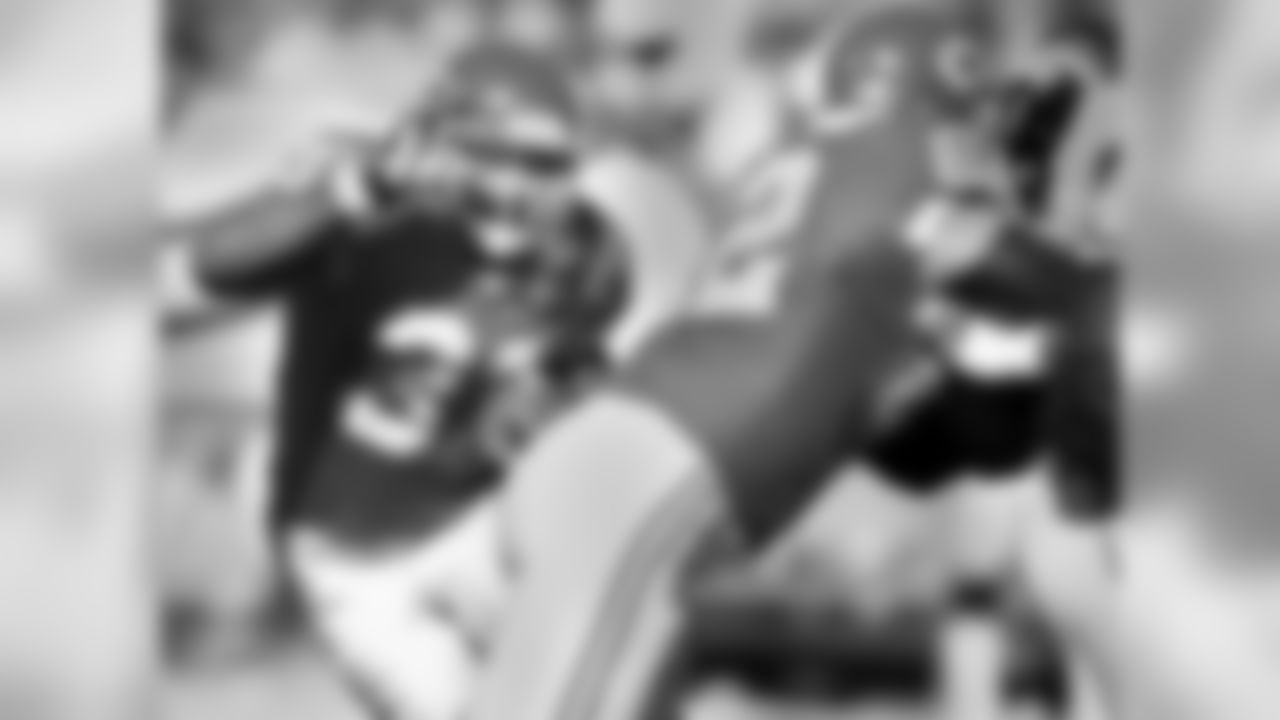
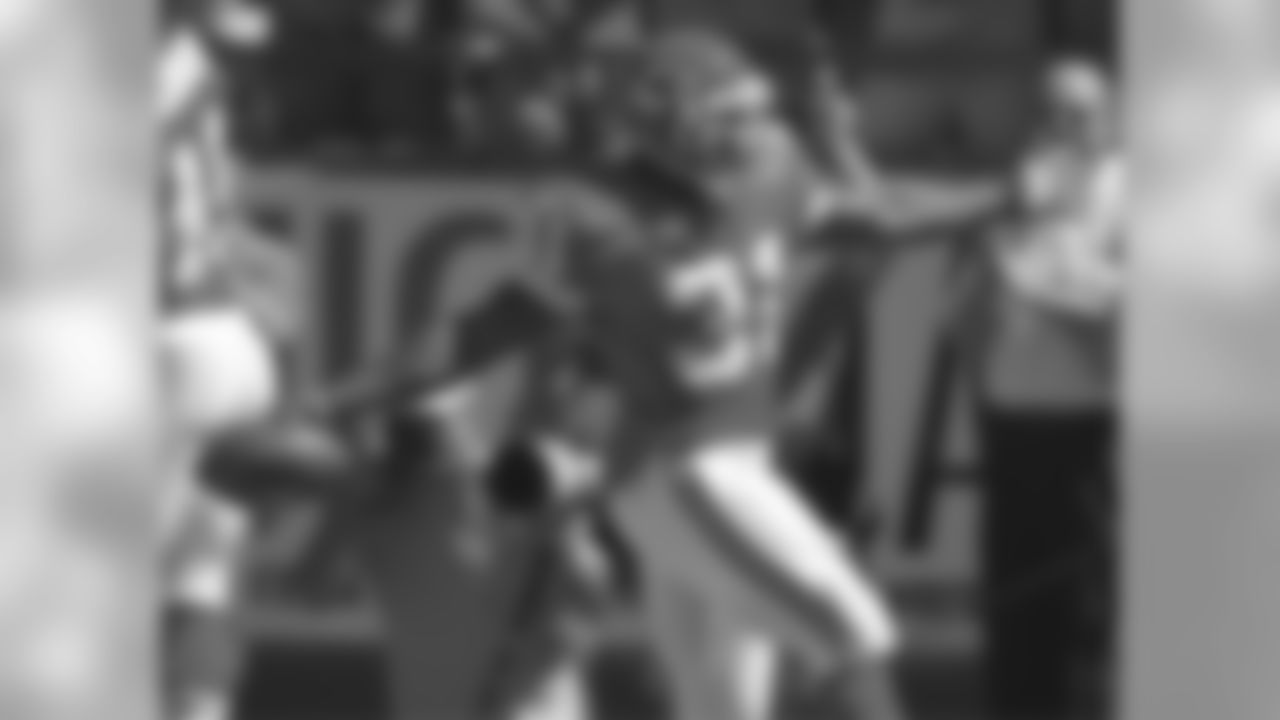
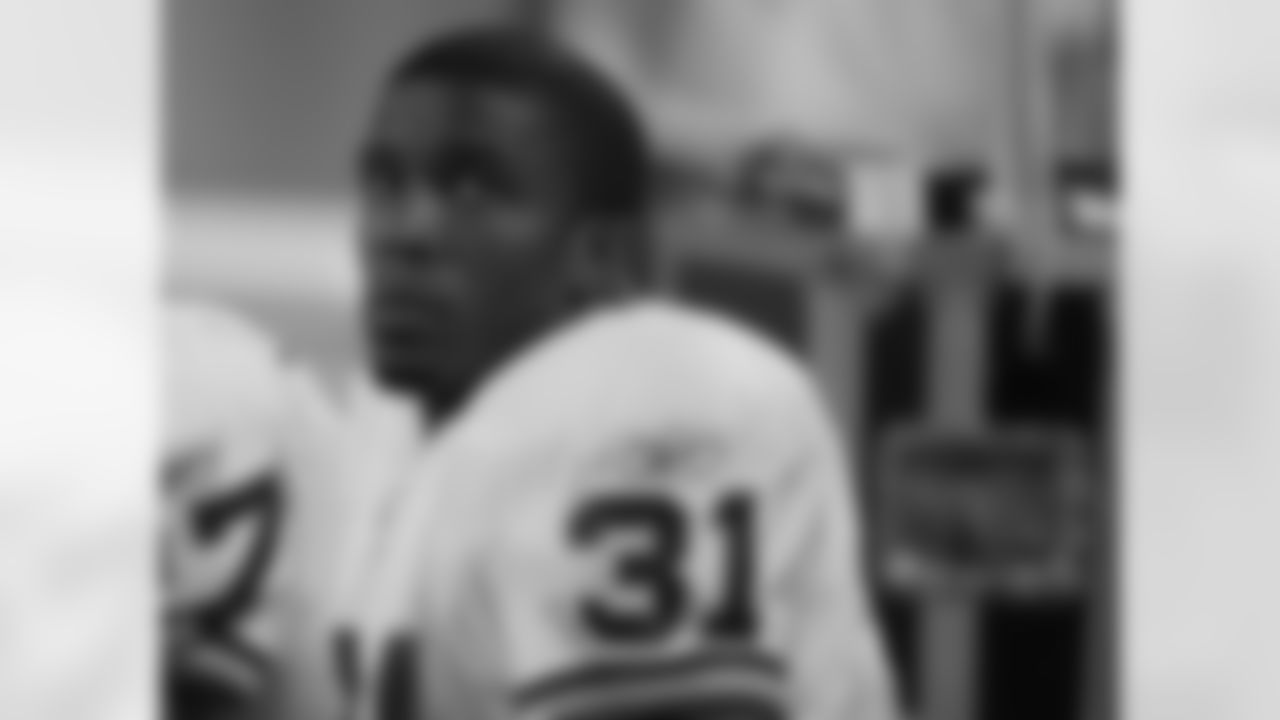
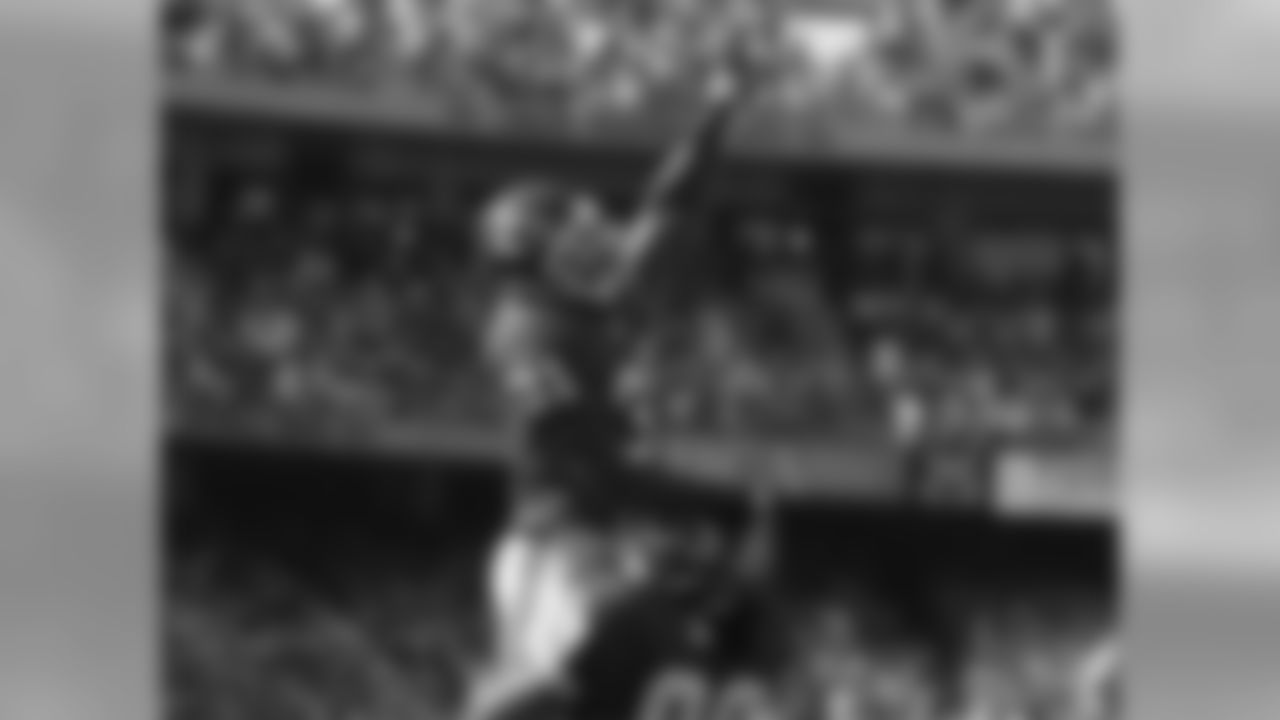
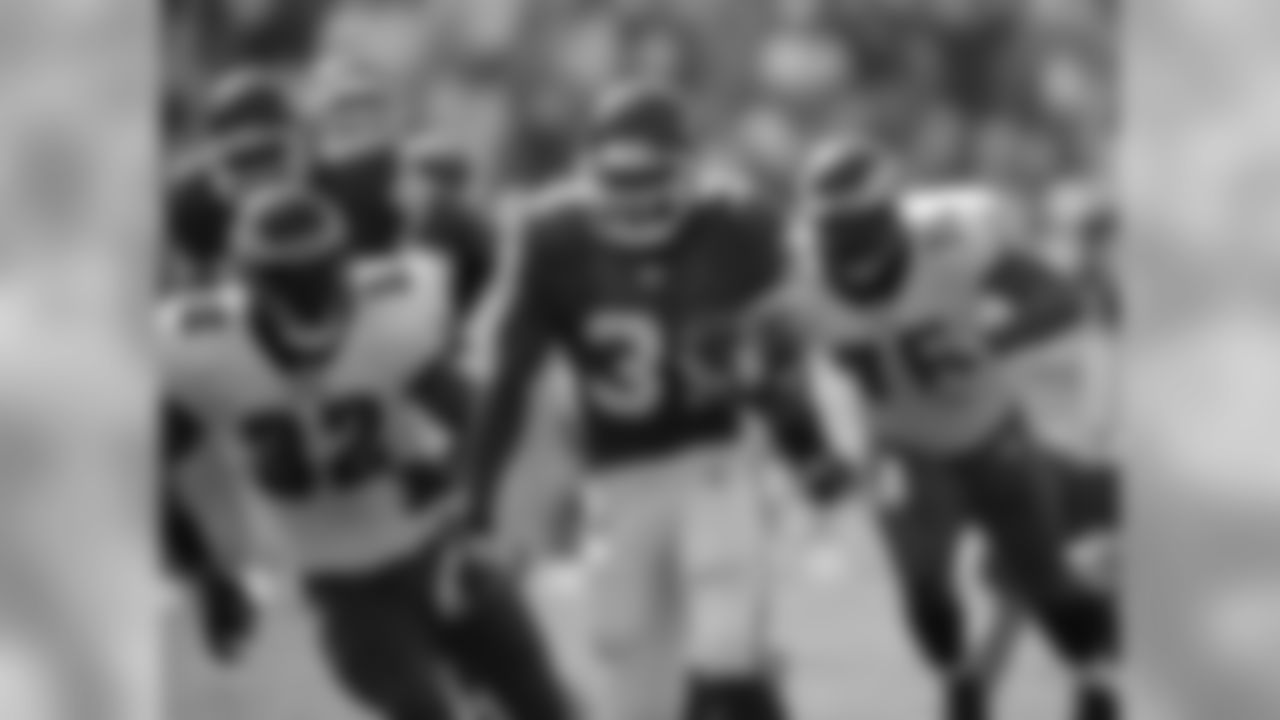
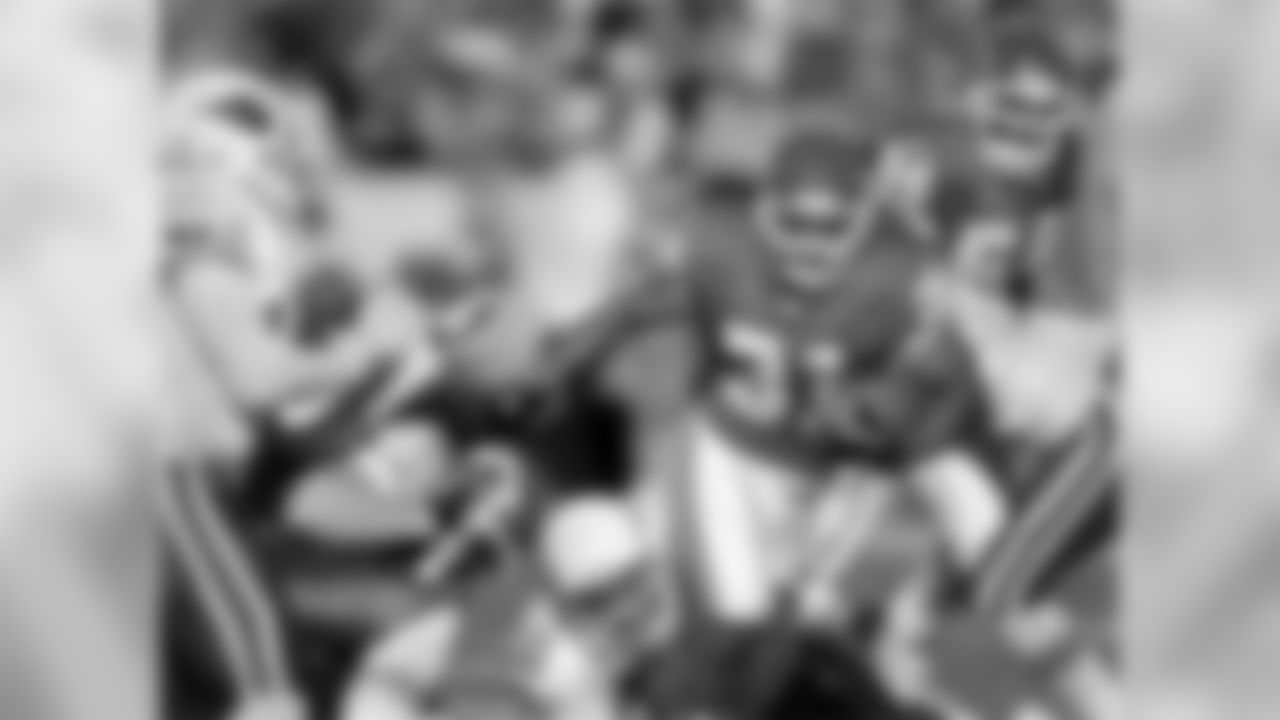
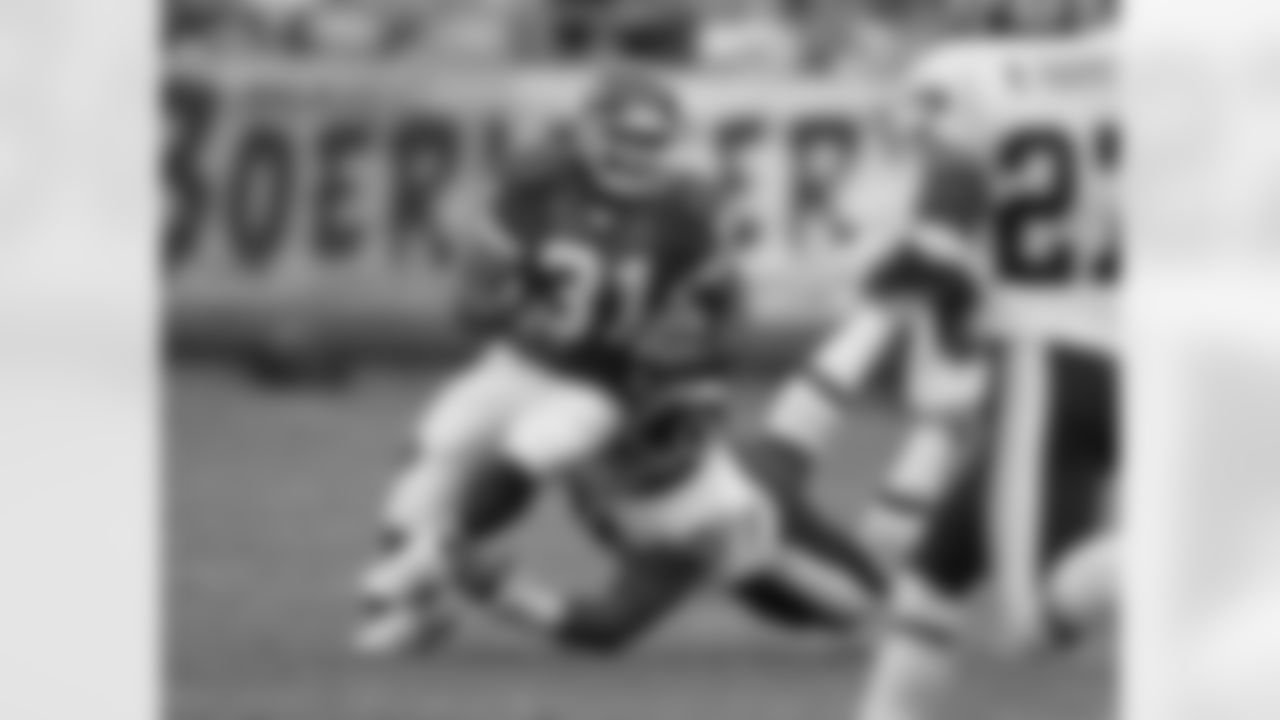
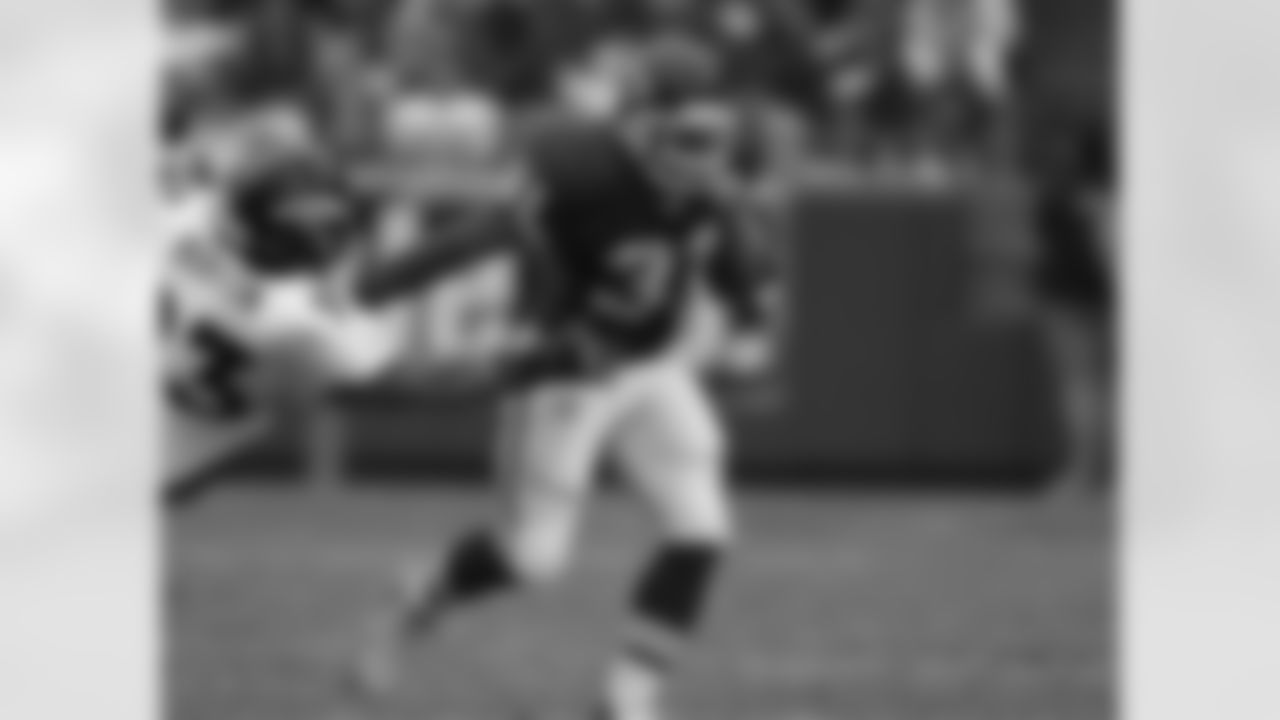
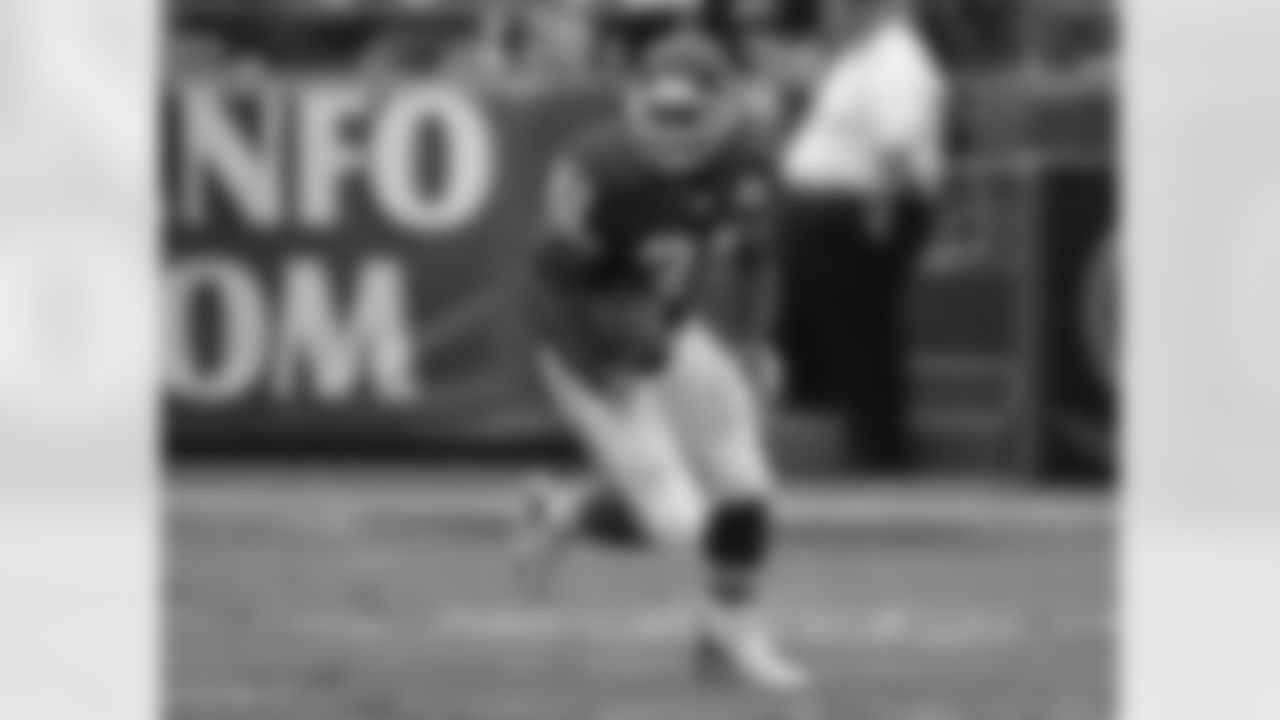
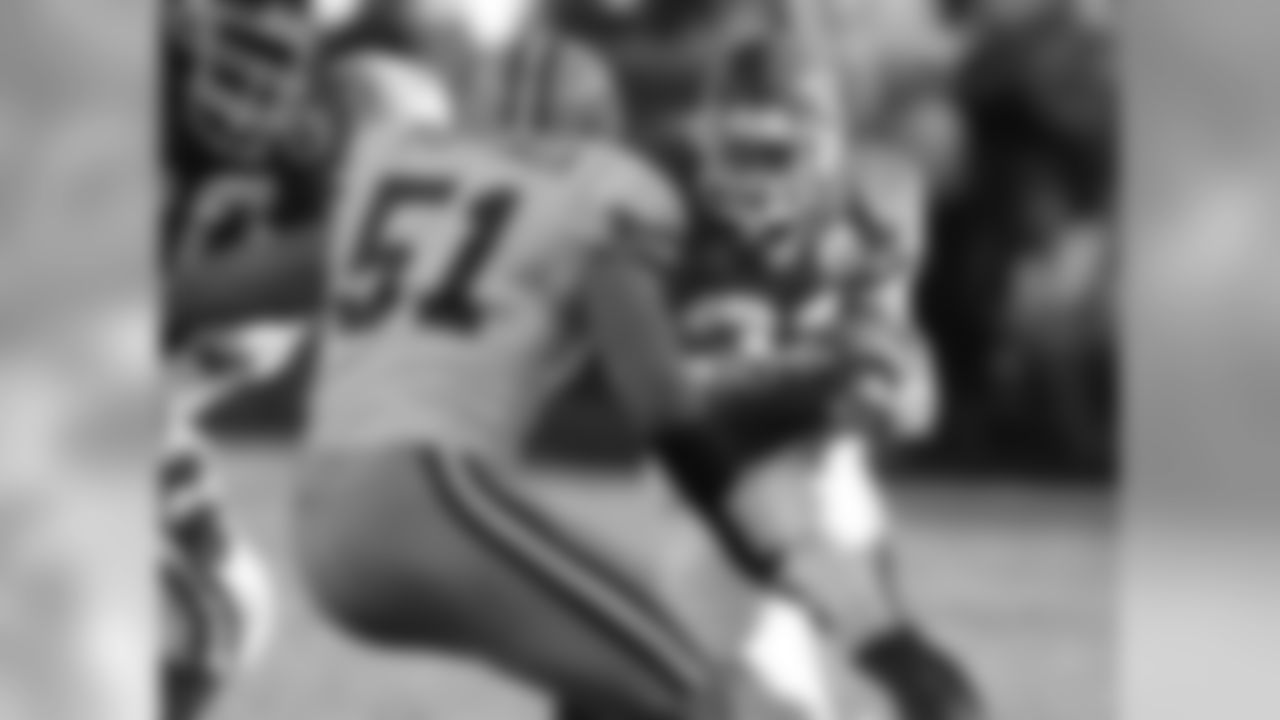
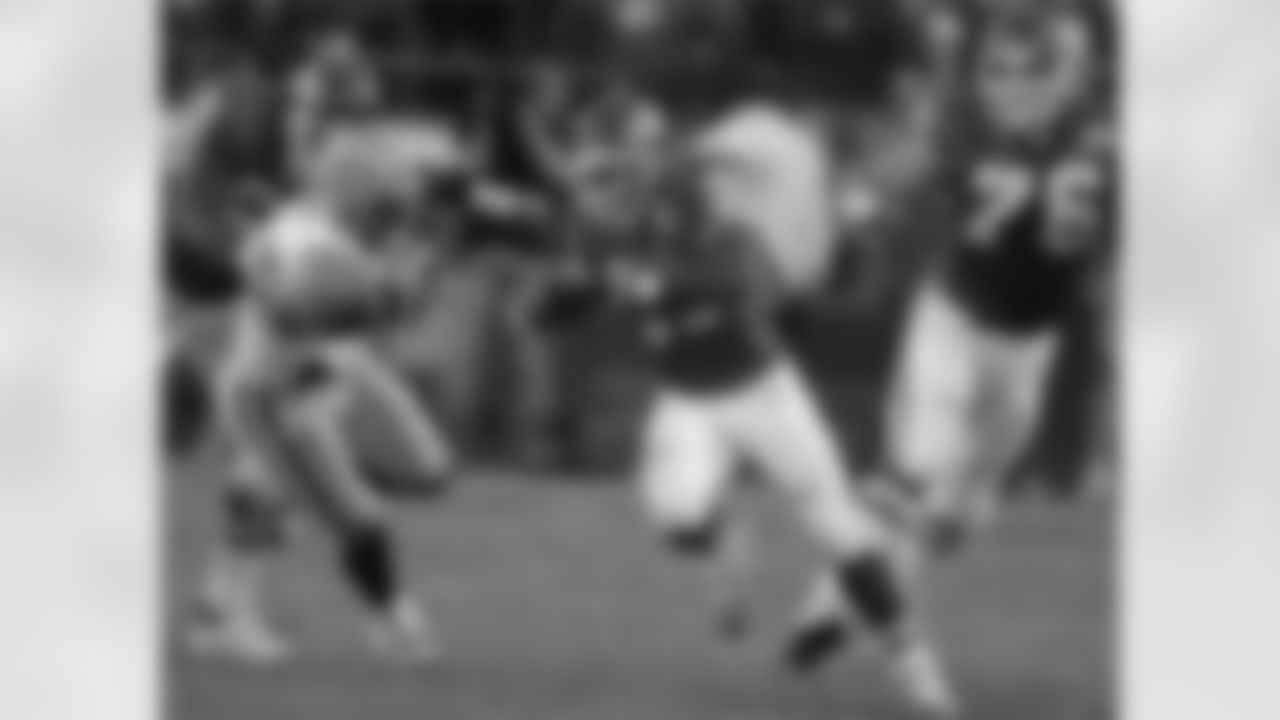
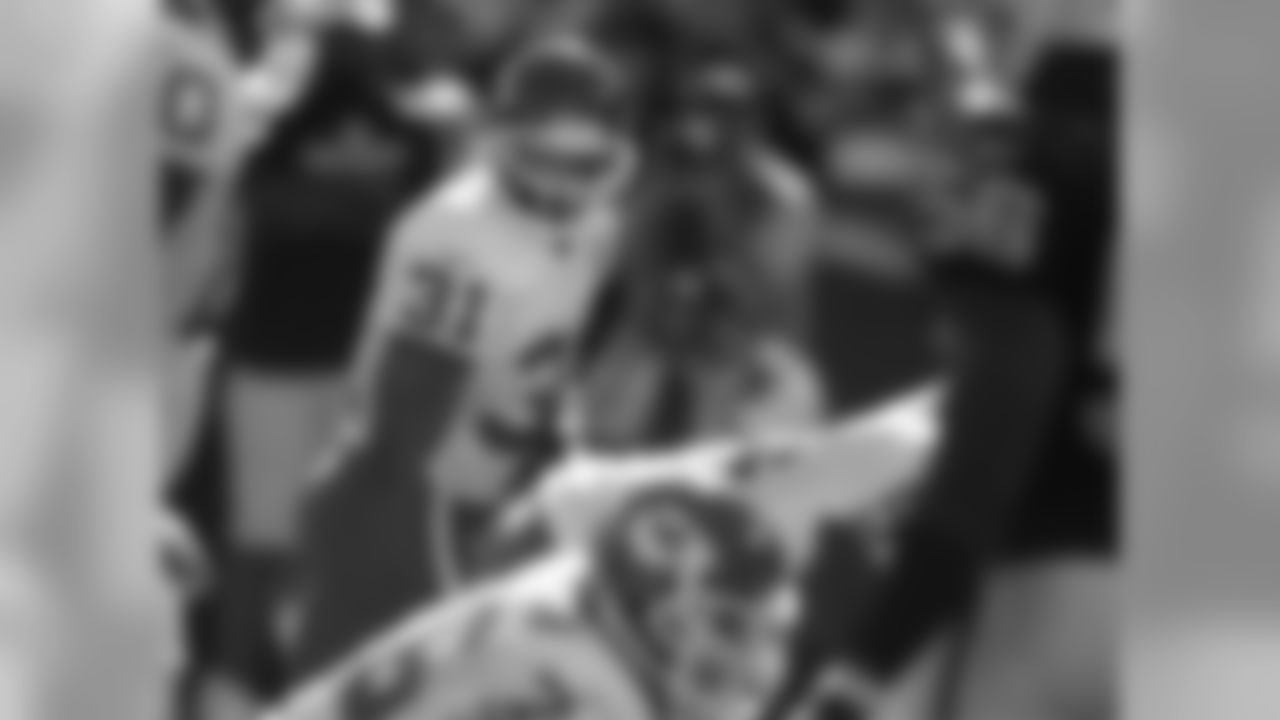
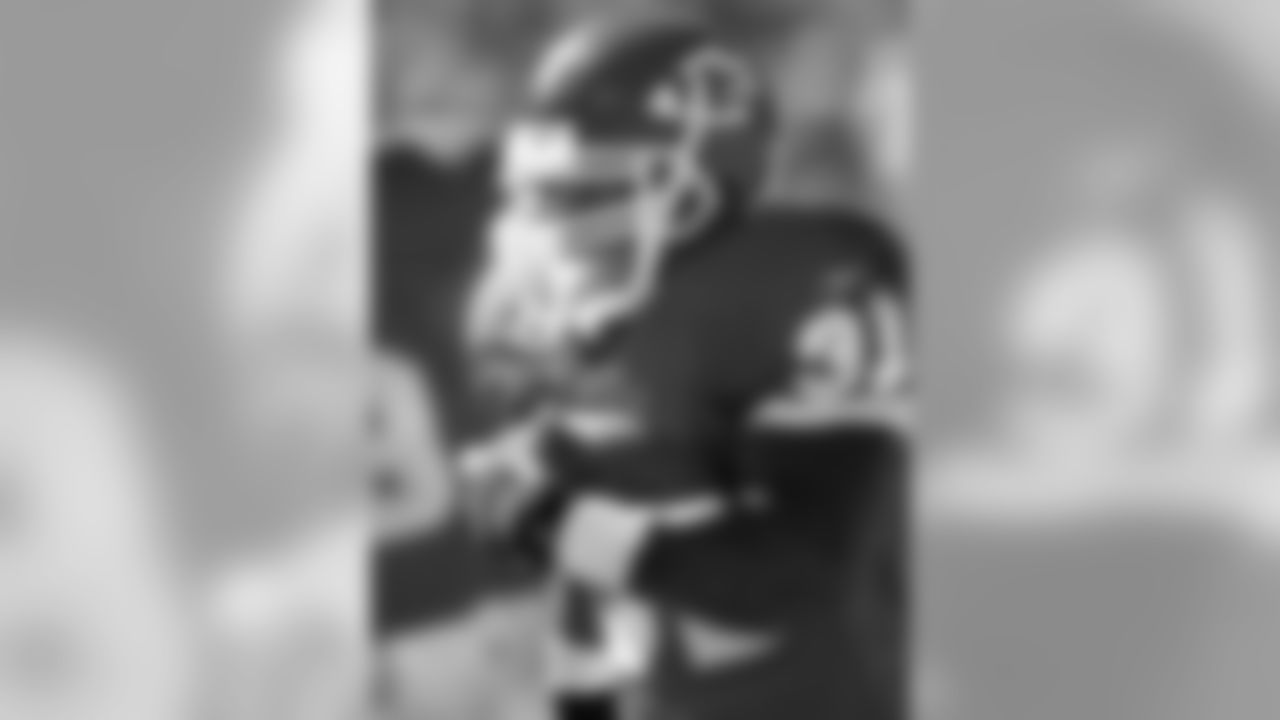
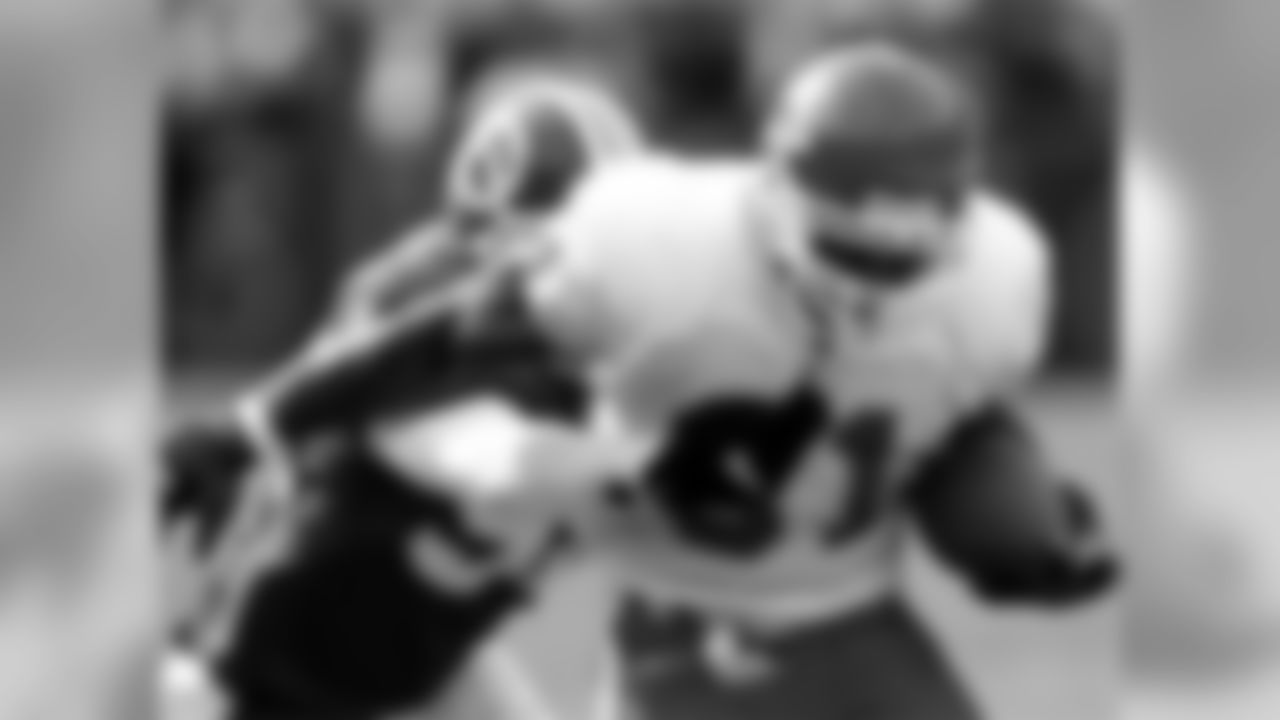
"[Priest] made his name in the '94 Sun Bowl against a Mack Brown North Carolina team," Kirk Bohls of the Austin American-Statesman said. "Then he capped it off in 1996 with that great Big 12 Championship performance against Nebraska."
Holmes became the 25th member of the Legends of the Sun Bowl after his performance in Texas' 35-31 win over North Carolina. Holmes finished the game with 27 carries for 161 yards and four touchdowns, including 12 carries for 61 yards and two touchdowns in the final nine minutes of the game, when the Longhorns had trailed 31-21.
Sharing the Texas backfield with Ricky Williams in 1996, Holmes made the most of his carries in the 1996 Big 12 Championship game against Nebraska, carrying the ball nine times for 120 yards and three touchdowns.
"There's something special about that game that a lot of people didn't realize is that Dick Vermeil commentated that game," Holmes said.
Vermeil, who would later become the Chiefs head coach, recalls talking about Holmes before that game.
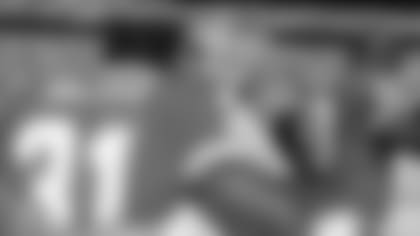
"My last year in broadcasting," Vermeil explained. "I was standing next to [Texas] coach [John] Mackovic and talking to him about the game and he said 'You know, to me, Ricky Williams is getting old but we'll see, but the player of the game will probably be Priest Holmes.' I said 'Oh is that right?'"
It wasn't just statistics that stood out about that game for Holmes; Texas was an underdog and he led the way.
"That's going to be a game I probably never forget," Kirk Bohls of the Austin American-Statesman said. "Nebraska was a three-touchdown favorite. It was a foregone conclusion—Nebraska is going to wipe the map with Texas and go to the national championship game if things fall their way."
Led by Holmes' three touchdowns, Texas beat Nebraska 37-27 and won the first Big 12 Championship.
After four years on the field at Texas (1992-94, 1996), which included 252 carries for 1,276 yards and 20 touchdowns, Holmes signed as an undrafted free agent with the Baltimore Ravens in 1997.
In his four seasons with the Ravens, Holmes carried the ball 459 times for 2,102 yards with ten touchdowns.
His best season in Baltimore was 1998, where he ran for 1,008 yards with seven touchdowns.
Over the next two seasons, including an injury-ridden season in 1999, Holmes started just six games for the Ravens and was eventually replaced by Jamal Lewis, whom the Ravens had drafted with the No. 5 overall pick in 2000.
Holmes explained the process of how he ended up in Kansas City following the 2000 season with the Ravens.
"There was a phone call made to me and [Chiefs] coach [Dick] Vermeil said that we're going to go either one or two ways," Holmes explained. "We're going to go one, with a younger quarterback, younger running back out of the draft, or we're going to go ahead and trade up and get Trent Green and then of course, you would come with him.
"I got that call and [Vermeil] says 'Guess who our quarterback is going to be?' and once he said 'Trent Green,' I knew I was going to be a Chief, so I was really excited about that."
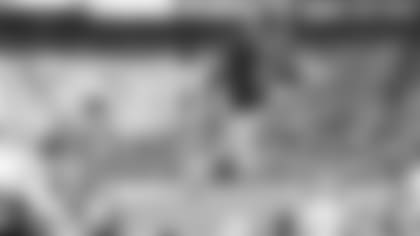
After signing with the Chiefs as a free agent in 2001 after four years in Baltimore, where he was a member of the Ravens' Super Bowl championship team in 2000, Holmes played seven seasons in Kansas City, rushing for 6,070 yards and scoring 83 total touchdowns.
Holmes was named to the All-Pro team in each of his first three seasons in Kansas City (2001-03) and is tied with LaDainian Tomlinson for an NFL record 10 games with at least two touchdowns in 2003.
Former Chiefs All-Pro guard Will Shields remembers the uncertainty surrounding the arrival of both Trent Green and Priest Holmes.
"Adding those two new guys to our team, we weren't sure what they were going to bring to the table," Shields said. "Knowing that Priest (Holmes) was coming in, but he had an injury and then the year before that, having Trent (Green) go through the same issue, we weren't sure what we were getting with those two guys."
What they got were catalysts for an offense that would be among the best in the NFL.
"We didn't really know how we were going to utilize Priest (Holmes)," Green said. "I think there was the anticipation or the hope that we could do some of the same things with Priest that we did with Marshall Faulk over in St. Louis."
Some of his other teammates agreed.

"I had known of Priest but I don't think any of us knew that he was capable of doing the great things that he did here in Kansas City," former Chiefs returner and offensive playmaker Dante Hall said.
After signing with the Chiefs, Holmes didn't burst onto the scene immediately, according to his teammates.
"A lot of people don't remember," former fullback Tony Richardson said. "When Priest first got here, I'm not going to say he was struggling, but he really wasn't picking up on the offense very well and really wasn't clicking into the scheme."
Holmes agreed with Richardson.
"Coming to the team, the first two weeks were a little hard for me to even swallow because initially I came in thinking 'OK, these guys are trading up to get me to come in, I'm a free agent,'" Holmes explained. "But I got here and I believe I had two games, no more than like 13 carries. It was like six carries for the first game, seven carries for the second game.
"My first pass in the NFL was an angle route for five yards, and you come across where the linebacker is and I dropped the freakin' ball. So of course, that didn't make anything better but for 13 carries, my feelings were a little bit hurt of course."
But in Week 3 against Washington, Holmes had a breakout game.
Holmes ran the ball 23 times for 147 yards and two touchdowns to lead the Chiefs to their first victory of the season.
"This cat comes out of nowhere and I'm like 'Who is this kid?'" Richardson said after the Washington game back in 2001.
"You watch Priest just sort of elevate his game and once he started saying 'Hey, I can do this' or 'We'll do this' and 'We'll do that,' that's when you knew he had arrived," Shields said.
Holmes remembers a conversation he had with Richardson after the Washington game.
"After that happened, Tony Richardson stepped up and he said 'I know that they've kind of been allowing me to run the ball because I was the running back last year, but I really believe in you,'" Holmes recalled.
"He said 'You know what? In order for us to have some success, I'm going to make the decision. I'm going to be your fullback. I want you to be our running back. I'm going to block for you and I'm going to let the coaches know how I feel about this.' And for a guy that had the opportunity to still play as our starting running back because he did the year before I got there, unselfish."
That was the beginning of the offensive juggernaut that took fire in Kansas City. "We knew that at that point that it was going to be tough to stop us in any way and our mental makeup changed at that game," Shields said. "Basically, we could do anything we wanted to and score as many points as we wanted to against any team."


